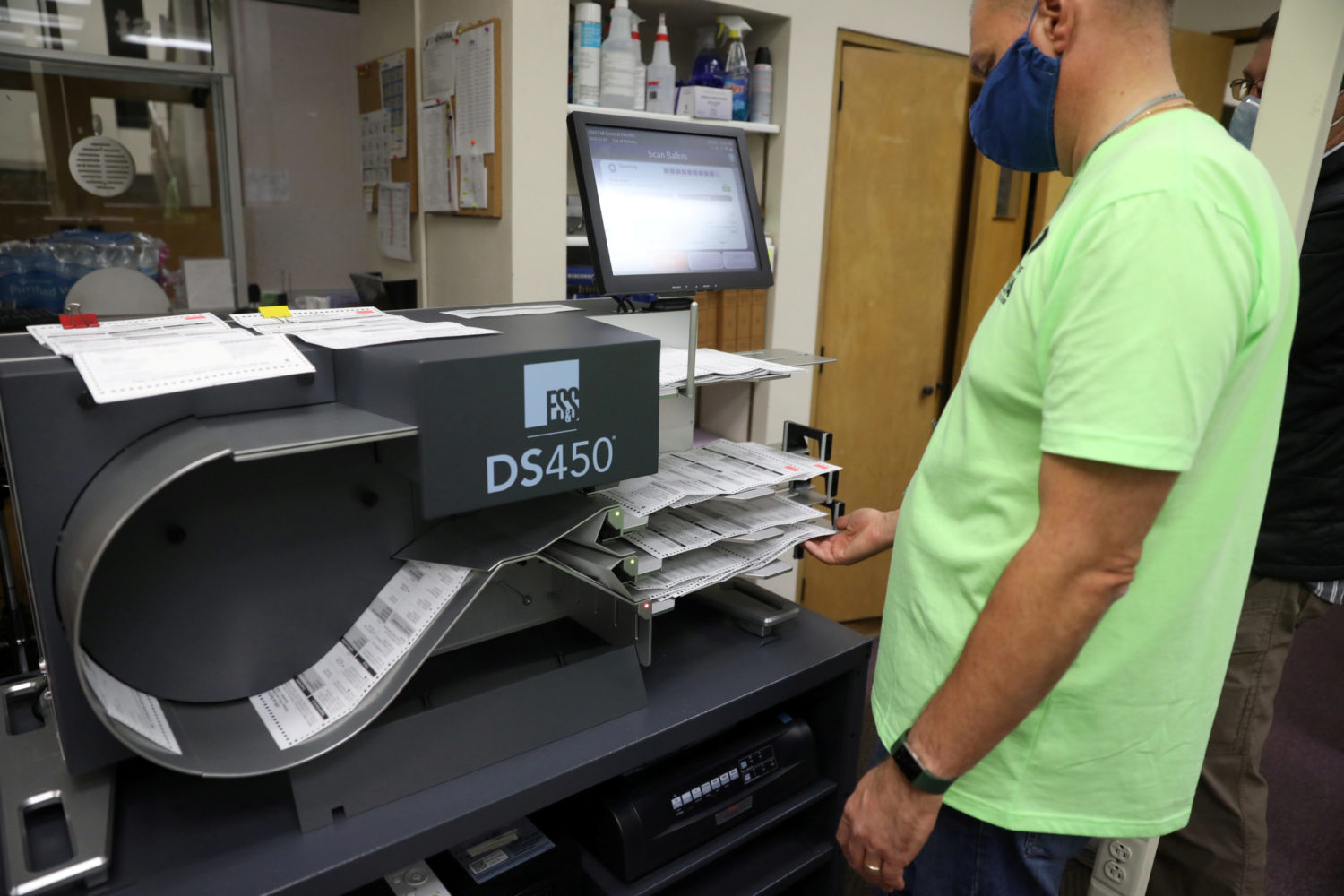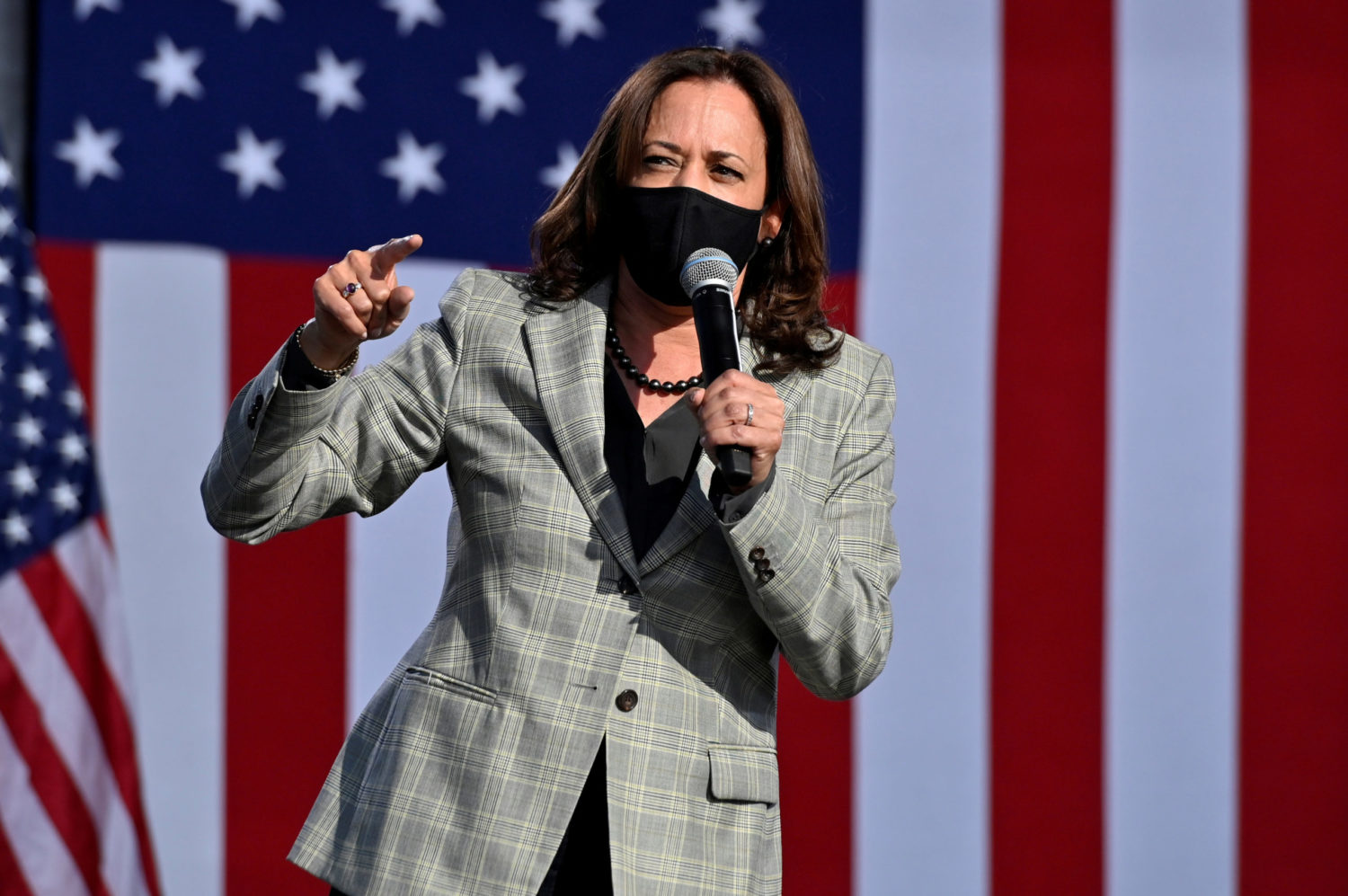
By Luke Baker, Libby George and Daria Sito-Sucic
LONDON/LAGOS/SARAJEVO (Reuters) – A day after Americans voted in a bitterly contested election, the rest of the world was none the wiser on Wednesday, with millions of votes still to count, the race too close to call and a mounting risk of days or even weeks of legal uncertainty.
Donald Trump’s pre-emptive declaration of victory at the White House was condemned by some U.S. political commentators and civil rights groups, who warned about the trampling of long-standing democratic norms.
Most world leaders and foreign ministers sat on their hands, trying not to add any fuel to the electoral fire.
“Let’s wait and see what the outcome is,” said British Foreign Secretary Dominic Raab. “There’s obviously a significant amount of uncertainty. It’s much closer than I think many had expected.”
But while Raab and others urged caution, the Slovenian prime minister broke ranks, congratulating Trump and the Republican party via Twitter.
“It’s pretty clear that American people have elected @realDonaldTrump and @Mike_Pence for #4moreyears,” wrote Janez Jansa, one of several east European leaders, including Hungary’s Viktor Orban, who are fervent Trump allies. “Congratulations @GOP for strong results across the #US.”
The latest vote tally showed Democrat challenger Joe Biden with a lead in the Electoral College – 224 votes to 213, with 270 needed for victory – but with counting still be completed in at least five major ‘battleground’ states: Pennsylvania, Michigan, Wisconsin, North Carolina and Georgia.
In 2000, the election between George W. Bush and Al Gore hinged on Florida. It was ultimately decided in Bush’s favor by the U.S. Supreme Court, in a ruling five weeks after the vote.
In his comments, Trump suggested the Supreme Court – to which he has nominated three of the nine justices – would have to decide the winner again.
On Twitter, the hashtags #Trump, #Biden and #USElections2020 were trending from Russia to Pakistan, Malaysia to Kenya and across Europe and Latin America, underscoring how much every region of the world sees the outcome as pivotal.
In Russia, which U.S. intelligence agencies have accused of trying to interfere in the election, there was no official reaction.
But Pro-Kremlin lawmaker Vyacheslav Nikonov, the grandson of Stalin’s foreign minister, advised Russians to stock up on popcorn to watch the show he predicted was about to unfold, saying U.S. society was fatally split.
“The result of the elections is the worst outcome for America,” Nikonov, who welcomed Trump’s 2016 win, wrote on Facebook. “Whoever wins the legal battles half of Americans will not consider them the lawful president. Let’s stock up on large quantities of popcorn.”
‘IT AFFECTS US ALL’
In Australia, crowds watched the results roll in while drinking beer in an American bar in Sydney.
“The news is so much better when Trump is in,” said Glen Roberts, wearing a red ‘Make Europe Great Again’ baseball cap. “You never know what he said, it’s so good. I think it’ll be less interesting if Trump loses.”
Others were quick to underline the ramifications of the U.S. vote worldwide. “I think it affects us all, what happens over there really matters for the next four years over here,” said Sydney resident Luke Heinrich.
New York-based Human Rights Watch, one of the world’s leading civil rights groups, warned about the need to reserve judgment on the results until every vote is counted. With a very high number of mail-in ballots this year because of the Covid-19 pandemic, full tallies are expected to take days in some states.
Executive director Kenneth Roth said premature declarations of victory were dangerous.
“Autocrats might be perfectly happy to undermine democracy in the United States by welcoming a premature declaration of victory,” he said.
China, whose relations with the United States have sunk to their worst in decades under Trump, said the election was a domestic affair and it had “no position on it”.
Chinese social media users, however, were quick to mock the failure of the U.S. electoral system to deliver a quick and clear result.
“Whether he wins or loses, his final mission is to destroy the appearance of American democracy,” one user on China’s Twitter-like Weibo platform wrote on Wednesday.
“Let Trump be re-elected and take the U.S. downhill,” another wrote.
In Nigeria, one leading politician, Senator Shehu Sani, said the uncertainty in the United States was reminiscent of Africa.
“Africa used to learn American democracy, America is now learning African democracy,” he tweeted to his 1.6 million followers.
(Reporting by Luke Baker in London, Libby George in Lagos and Daria Sito-Sucic; Additional reporting by Stephanie Ulmer-Nebehay in Geneva, Crispian Balmer in Rome, Justyna Pawlak in Warsaw, Andrew Osborn in Moscow, Gabriela Baczynska in Brussels and Tony Munroe and Gao Liangping in Beijing; Editing by Alex Richardson)












